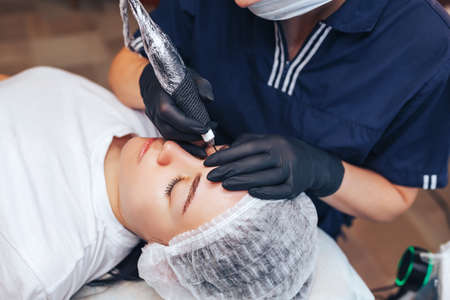Introduction to Technological Shifts in British Cosmetic Clinics
The face of cosmetic medicine in the UK is evolving at a pace few could have imagined a decade ago. Today, stepping into a British cosmetic clinic feels markedly different: digital check-ins, AI-powered skin assessments, and seamless virtual consultations are swiftly becoming the new norm. This transformation isn’t just about shiny new gadgets—it’s about how technology is fundamentally reshaping both patient experiences and professional standards across the country. As expectations grow for convenience, personalisation, and transparency, clinics are embracing innovative tools to meet—and exceed—these demands. From London’s high-end practices to local clinics in Manchester and Edinburgh, emerging technologies are setting a fresh benchmark for safety, accessibility, and results. The journey towards tech-forward cosmetic care is not only changing how treatments are delivered but also raising the bar for what patients expect from their aesthetic journey in Britain.
The Rise of AI in Aesthetics: Personalisation and Precision
As someone who has experienced the ever-evolving landscape of British cosmetic clinics, I have witnessed firsthand how artificial intelligence is revolutionising the industry. No longer confined to futuristic fantasies, AI is now a tangible asset in the hands of practitioners—helping to craft treatment plans that are both meticulously personalised and reliably safe.
British clinics have embraced this tech-driven approach with open arms, integrating AI into their consultation and diagnostic processes. This shift has not only elevated patient confidence but also increased the predictability of results. Imagine walking into a Harley Street clinic and being greeted by digital tools that analyse your facial structure, skin type, and medical history within moments. These AI systems can identify subtle asymmetries or underlying issues that even a seasoned practitioner might miss.
What truly sets UK clinics apart is their commitment to tailoring every procedure. AI platforms sift through vast databases of before-and-after results, matching your unique profile to those with similar features or concerns. The result? Treatment plans that feel bespoke, reflecting the British penchant for individuality and refinement.
How AI Enhances Patient Experience in British Clinics
| AI Feature | Benefit for Patients | Typical Usage in UK Clinics |
|---|---|---|
| 3D Imaging & Facial Mapping | Enhanced visualisation of potential outcomes | Pre-treatment previews during consultations |
| Predictive Analytics | Higher accuracy in predicting results & side effects | Bespoke risk assessment based on personal data |
| Automated Skin Analysis | Objective measurement of skin conditions | Treatment selection for laser, peels, injectables |
| Treatment Outcome Simulation | Improved patient communication & expectation management | Visual simulations shown on tablets/computers in-clinic |
This synergy between technology and traditional British standards has led to safer procedures and happier patients. There’s a sense of assurance knowing that each recommendation is backed by data and fine-tuned to your individual needs—something I deeply appreciate whenever I explore new treatments. AI doesn’t replace the artistry or intuition of skilled clinicians; rather, it enhances their ability to deliver natural, elegant results—a true reflection of British aesthetic sensibility.
![]()
3. Virtual Consultations: Convenience, Accessibility, and Trust
When I first experienced a virtual consultation with a British cosmetic clinic, I was struck by the seamless blend of professionalism and personal comfort. The process is redefining patient-clinician relationships across the UK, making expert advice more accessible than ever before. Through secure video calls, patients can connect with top practitioners from the comfort of their own homes—be it a cozy London flat or a cottage in the Cotswolds.
This shift isn’t just about convenience; it’s about bridging geographical gaps that once made high-quality cosmetic consultations a luxury reserved for those living near city centres. Now, whether you’re in bustling Manchester or the tranquil Scottish Highlands, specialist knowledge is simply a click away. Clinics have embraced British standards of privacy and discretion, offering confidential advice while maintaining the friendly, reassuring tone that characterises our healthcare culture.
Moreover, these virtual sessions foster trust in new ways. Without the intimidating clinical environment, patients often feel more at ease to ask questions or express concerns. Practitioners are adapting too—using clear, empathetic language and taking extra care to ensure each patient feels heard and understood. It’s a modern British approach: blending technology with warmth, and ensuring no one is left behind on their aesthetic journey.
Ethical Considerations and Data Security
As British cosmetic clinics embrace tech transformation, particularly AI-powered tools and virtual consultations, the ethical landscape grows increasingly complex. The UK has a proud tradition of upholding patient confidentiality—a standard deeply rooted in both legal frameworks like the Data Protection Act 2018 and cultural expectations around privacy. With digital solutions becoming an integral part of patient journeys, clinics must navigate new responsibilities with utmost diligence.
Balancing Innovation and Integrity
While technology can enhance personalisation and efficiency, it also demands a renewed focus on ethical conduct. Clinics are now custodians of sensitive information that goes beyond traditional medical records, encompassing facial scans, consultation videos, and predictive treatment analytics. This reality places a heightened duty on practitioners to seek informed consent for every data point collected, ensuring patients are aware of how their information will be used or stored.
Patient Privacy: A British Hallmark
The expectation for discretion is especially pronounced in the UK, where trust between patient and practitioner is paramount. Cosmetic clinics must not only comply with regulations but also foster transparent communication. This means clearly outlining data protection measures during initial consultations—whether in person or virtual—and being proactive about addressing any concerns around data sharing.
Key Responsibilities for British Cosmetic Clinics
| Responsibility | Description | British Standard |
|---|---|---|
| Informed Consent | Explicitly communicate what data will be collected and how it will be used | Alignment with GMC guidance and GDPR requirements |
| Data Security | Implement robust cyber security protocols for all digital platforms | Adherence to NHS Digital guidelines |
| Confidentiality Training | Ensure staff receive regular updates on handling sensitive information | CQC compliance checks and ongoing professional development |
| Transparency | Offer clear, accessible privacy policies tailored to the British context | Bespoke communications reflecting local expectations |
| Response to Breaches | Swiftly notify patients if any breach occurs and outline remedial actions | Mental Health Act 1983 & ICO best practices |
Ultimately, as digital innovation reshapes the aesthetic landscape, British cosmetic clinics must remain steadfast in their ethical commitments. By marrying cutting-edge technology with the nation’s celebrated standards for discretion, they can inspire confidence while delivering exceptional care in an evolving world.
5. Challenges and Opportunities: From Clinic Culture to Client Experience
The digital transformation sweeping through British cosmetic clinics is not without its fair share of challenges and opportunities. On the ground, I’ve witnessed a fascinating push-and-pull between tradition and innovation—something uniquely British in its flavour. Implementing AI-driven tools and virtual consultations requires more than just new tech; it demands a cultural shift within the clinic itself.
Staff Training: Nurturing Confidence and Competence
For many practitioners, the introduction of artificial intelligence can feel daunting at first. Mastering new platforms, interpreting AI-generated analyses, or guiding clients through virtual consultations calls for an investment in comprehensive staff training. There’s a learning curve, certainly, but also a palpable sense of excitement as team members realise how these tools can empower them to deliver more personalised care. The key lies in fostering open communication and ongoing support—a distinctly British approach to nurturing both confidence and competence in the workplace.
Shaping Clinic Atmosphere: Blending Warmth with Innovation
There’s always the risk that digital technology could make clinical environments feel cold or impersonal. However, what I’ve observed in British clinics is a conscious effort to blend technological efficiency with quintessential warmth and hospitality. Reception areas remain inviting, consultations retain their empathetic touch, and staff take pride in maintaining those small, thoughtful details—be it offering a cup of tea or simply engaging in friendly banter—that put clients at ease.
The Client’s Emotional Journey
For clients embarking on aesthetic treatments, emotions often run high—from anticipation to vulnerability. Virtual consultations offer privacy and convenience, but some clients initially worry about missing out on that trusted face-to-face connection. Here lies an opportunity: by integrating digital tools with genuine human interaction, clinics can guide clients through their journey with reassurance at every step. Thoughtful follow-ups, digital aftercare resources, and transparent communication all contribute to building trust—a cornerstone of the British client experience.
Navigating Practical Hurdles
No transformation is without its teething problems—technical glitches, data security concerns, or adapting workflows to new systems can create friction. Yet these hurdles have also sparked creative problem-solving within teams. Clinics are investing in robust IT support, prioritising patient confidentiality according to UK regulations, and listening closely to client feedback so that digital solutions genuinely enhance—not complicate—their experience.
Ultimately, the marriage of AI and virtual consultation technology with British clinic culture is still evolving. It’s a dynamic process that brings fresh opportunities for personalisation and efficiency while challenging teams to preserve the soul of their practice. As both clinics and clients adapt together, there’s a growing sense that technology isn’t replacing the human touch—it’s helping us rediscover it in ever more meaningful ways.
6. Looking Forward: The Future of Cosmetic Clinics in the UK
As someone who has observed first-hand the subtle yet sweeping changes brought by technology in British cosmetic clinics, I find myself genuinely excited about what lies ahead. The integration of AI and virtual consultations isn’t just a fleeting trend—it’s setting the stage for a new era in beauty and aesthetics across the UK.
Trends to Watch
Several key trends are beginning to shape the future landscape. Personalised treatment plans powered by AI, real-time skin analysis, and virtual aftercare sessions are becoming increasingly mainstream. Clinics are also exploring AI-driven diagnostic tools that can predict outcomes with remarkable accuracy, offering clients peace of mind before they even step into a treatment room.
Elevating British Beauty Standards
The British approach to aesthetics is renowned for its understated elegance and natural results. With advanced tech, practitioners can now refine their craft even further—delivering tailored recommendations that enhance individual beauty while honouring cultural preferences for subtlety and sophistication. Virtual consultations mean Londoners in Mayfair or Mancunians in Didsbury can access top-tier expertise without leaving home, breaking down regional barriers and ensuring high standards nationwide.
Personal Insights
From my own experience, there’s something uniquely reassuring about seeing a practitioner combine classic British discretion with cutting-edge digital tools. Whether it’s discussing skincare goals over a secure video call or receiving post-treatment advice via an intuitive app, clients feel more informed, supported, and empowered throughout their journey.
Looking Ahead
The journey doesn’t stop here. As AI becomes smarter and virtual platforms more immersive, I believe we’ll see even greater focus on preventative care, ethical practice, and holistic wellbeing—all woven seamlessly into the fabric of British cosmetic clinics. It’s an evolution that not only preserves but elevates the artistry and trust that define UK aesthetics—a transformation as beautiful as the results themselves.


